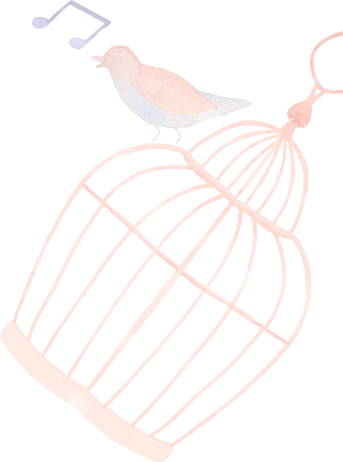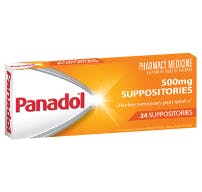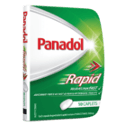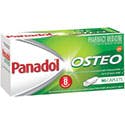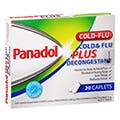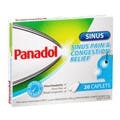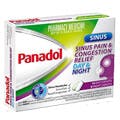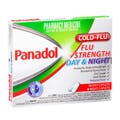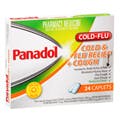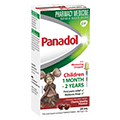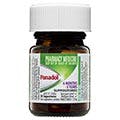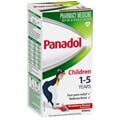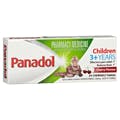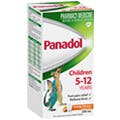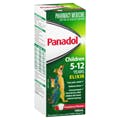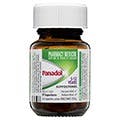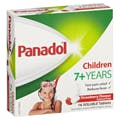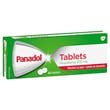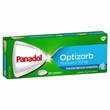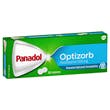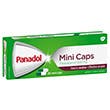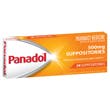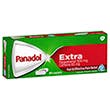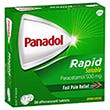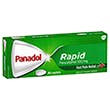

Colourfree Baby Drops 1-2 Months

Colourfree Suspension 1-5 Years

Chewable Tablets 3+

Suppositories 6 Months - 5 Years

Colourfree Suspension 5-12 Years

Elixir 5 - 12 Years

Suppositories 5-12 Years

Soluble 7+

Panadol Tablets

Panadol Caplets with Optizorb Formulation

Panadol Tablets with Optizorb Formulation

Panadol Gel Caps

Panadol Mini Caps

Panadol Suppositories

Panadol Back & Neck

Panadol Extra Caplets

Panadol Rapid Soluble

Panadol Rapid Caplets

Panado Rapid Handipak

Panadol Back & Neck Long Lasting

Panadol Osteo

Panadol Cold & Flu + Decongestant

Panadol Cold & Flu - Flu Strength (Day & Night)

Panadol Cold & Flu Relief + Cough

Panadol Cold & Flu MAX Hot Lemon
Compare Now (0/5)
- Product
- Format
- Age
- Key Features
- Ingredients

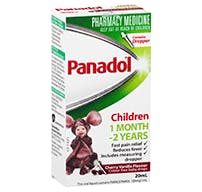
Colourfree Baby Drops 1-2 Months
- Concentrated Drops
- 1 Month - 2 Years
- Gentle on Tiny Tummies
- 500mg Paracetamol
- No gluten, lactose or sugar

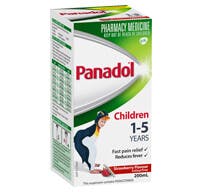
Colourfree Suspension 1-5 Years
- Suspension
- 1-5 Years
- Strawberry/Orange Flavour
- Active Ingredient: Paracetamol 24 mg/mL

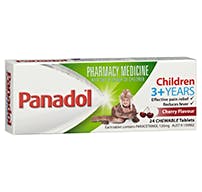
Chewable Tablets 3+
- Dissolvable Tablets
- 1-5 Years
- Perfect For Travel
- Active Ingredient: 120mg of Paracetamol per tablet

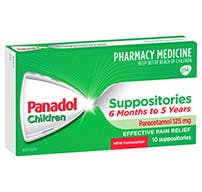
Suppositories 6 Months - 5 Years
- Suppositories
- 6 Months - 5 Years
- For vomiting
- Active ingredient: Paracetamol 125mg per suppository.

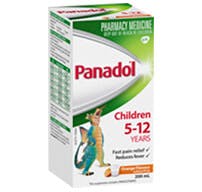
Colourfree Suspension 5-12 Years
- Suspension
- 5-12 Years
- Strawberry/Orange Flavour
- Active ingredient: Paracetamol 48 mg/mL

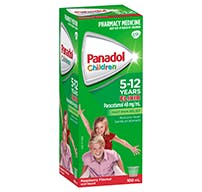
Elixir 5 - 12 Years
- Suspension
- 5-12 Years
- Fast & gentle relief
- Active ingredient: Paracetamol 48 mg/mL

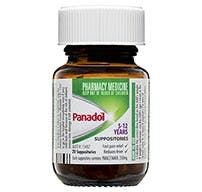
Suppositories 5-12 Years
- Suppositories
- 5-12 Years
- For vomiting
- Active ingredient: 250mg Paracetamol per suppository

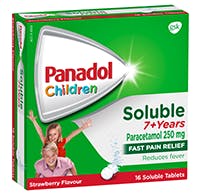
Soluble 7+
- Effervescent Tablets
- 7+ Years
- Absorbed quicker
- Active ingredient: Paracetamol

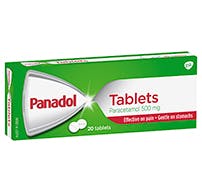
Panadol Tablets
- Tablets
- 12+ Years
- Basic Pain
- Active ingredient: 500mg Paracetamol

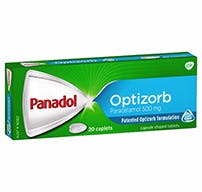
Panadol Caplets with Optizorb Formulation
- Caplets
- 12+ Years
- Quicker Absorbtion
- Active ingredient: 500mg Paracetamol

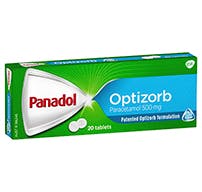
Panadol Tablets with Optizorb Formulation
- Tablets
- 12+ Years
- Quicker Absorbtion
- Active ingredient: 500mg Paracetamol

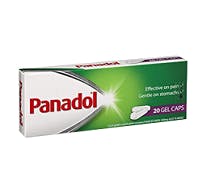
Panadol Gel Caps
- Caplets
- 12+ Years
- Easier to swallow
- Active ingredient: 500mg Paracetamol

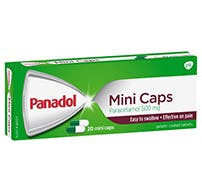
Panadol Mini Caps
- Caplets
- 12+ Years
- Easier to swallow
- Active ingredient: 500mg Paracetamol

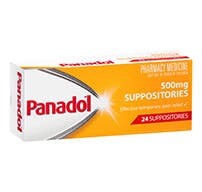
Panadol Suppositories
- Suppositories
- 12+ Years
- For vomiting
- Active ingredient: 500mg Paracetamol per suppository.

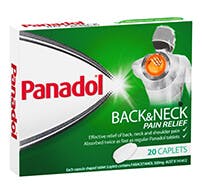
Panadol Back & Neck
- Caplets
- 12+ Years
- Fights Back Pain
- Active ingredient: 500mg Paracetamol

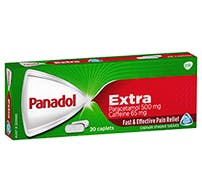
Panadol Extra Caplets
- Caplets
- 12+ Years
- Fight Tough Pai
- Active ingredient: 500mg Paracetamol , 65mg caffeine

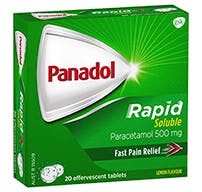
Panadol Rapid Soluble
- Dissolvable Tablets
- 12+ Years
- Absorbed 2x Faster
- Active ingredient: 500mg Paracetamol

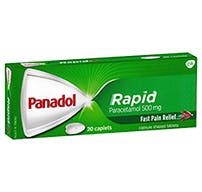
Panadol Rapid Caplets
- Caplets
- 12+ Years
- Absorbed 2x Faster
- Active ingredient: Paracetamol

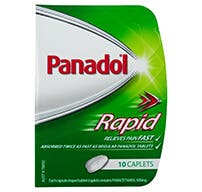
Panado Rapid Handipak
- Caplets
- 12+ Years
- Absorbed 2x Faster
- Active ingredient: 500mg Paracetamol

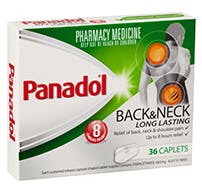
Panadol Back & Neck Long Lasting
- Caplets
- 12+ Years
- Up to 8 hours
- Active ingredient: 655mg Paracetamol

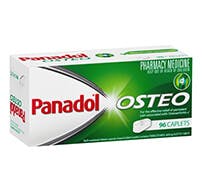
Panadol Osteo
- Tablets
- 12+ Years
- Up to 8 hours
- Active ingredient: 665mg Paracetamol

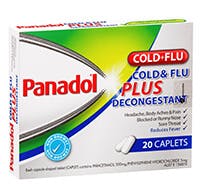
Panadol Cold & Flu + Decongestant
- Caplets
- 12+ Years
- With Decongestant
- 500mg Paracetamol

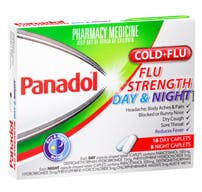
Panadol Cold & Flu - Flu Strength (Day & Night)
- Caplets
- 12+ Years
- Day & Night Relief
- 500mg Paracetamol

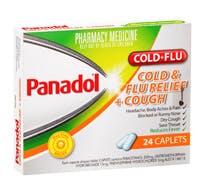
Panadol Cold & Flu Relief + Cough
- Caplets
- 12+ Years
- Cough Relief
- 500mg Paracetamol
Minimise
Learning To Talk
At around one year old, your toddler will begin to understand that certain sounds have certain meanings, and begin to use their first single words (as against sounds such as ‘ma-ma’ or ‘da-da’). Their new words may not be clear, or exactly as you say them, so repeat the word to them correctly. Don’t correct them or say, “No that’s wrong.” Just repeat the word, or words, again to model the way they should be said. Doing this in a positive way will help them learn.

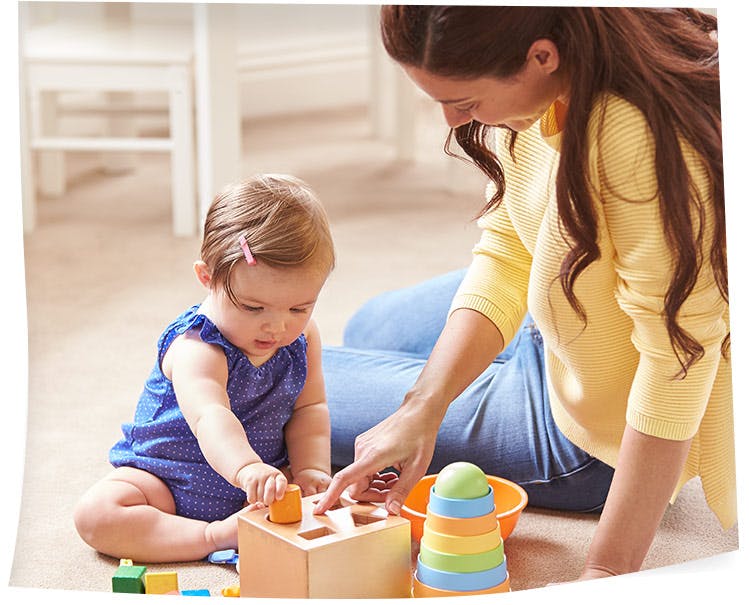

All toddlers go through a stage of pointing to objects they want. Don’t question them, but say the word clearly to describe what they are pointing to.
Repeat a word in 3 different sentences:
“Mummy will give you the juice.”
“The juice is in the fridge.”
“Mummy will put the juice in a cup.”
Talk about the different colours and objects they are playing with:
Repeat each word by emphasising in three sentences:
“Mummy will give you the block.”
“The block is on the floor.”
“The block is red.”
By around 2 years they start to use 2-word sentences. Gradually increase their vocabulary by adding another word when they’ve learnt the first, and repeat the words in different sentences. e.g. ‘orange juice,’ ‘red block.’
When you sing songs or nursery rhymes with your toddler, use plenty of actions to illustrate what you are singing. This will help your child link the word to its meaning.
Don’t ask them questions like “What do you want to wear?” as learning to make decisions is difficult for a toddler and this confuses them. Instead, give them a choice of two items, this one or that one. e.g. “Do you want to wear the yellow tee shirt or the red one?”
When you sing songs or nursery rhymes with your toddler, use plenty of actions to illustrate what you are singing. This will help your child link the word to its meaning.

.png?auto=format)
How do I know if my child has a speech or hearing problem?
- If by 12 months they don’t say ‘ma- ma, da-da’ and make lots of different sounds, chuckle and screech, or does not show signs of recognising the fact you are talking to them.
- If by 18 months they don’t point to 5-10 objects or persons when these are named by the parents, or don’t have at least 6 clearly understood words in their vocabulary to indicate their needs or describe things, or if they constantly drool.
- If by 2 years they don’t have at least 25 words that are clearly understood and are unable to point to parts of the body when named (e.g. nose), are unable to put 2 or more words together (e.g. “Mummy up”) or can’t follow simple instructions (e.g. “Where’s daddy?”).
- If by 3 years their language is still hard for people outside the family to understand, they don’t yet use 3 word sentences, or they don’t understand action words or follow 2 step directions (e.g. “Get your socks and bring them to mummy.”)
- If at any time they seem to be going backwards in their speech or language development.
What can I do?
- Ask your Child and Family Health Nurse to check your child. She may refer you to a speech pathologist and/or suggest a hearing test.
- Your child may have had a hearing test soon after birth. Even though they passed that test, this does not mean they cannot develop a hearing problem later in life.
Reference:
Parenting and Child Health. Milestones: children 0-4 years.
Adelaide: Women's and Children's Health Network; 2015 [Accessed 2015
March 3]. Available from
www.cyh.com/HealthTopics/HealthTopicDetails.aspx?p=114&np=122&id=1906

